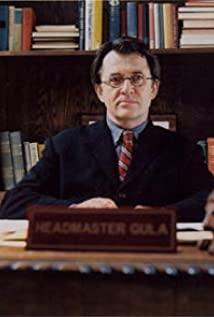"Nihilism - as a philosophical sense that the existence of the world, especially human beings, has no meaning, purpose, and comprehensible truth and most essential value. It is a tit-for-tat opinion put forward rather than a publicly stated position of a person. Many commentators believe that Dada, Deconstructionism, and Punk are all nihilistic movements, and nihilism is defined as a feature of certain times. Such as: Baudrillard (Baudrillard) called postmodern is the era of nihilism.
Although Turgenev made the term nihilism known, it was first introduced into philosophy by Friedrich Heinrich Jacobi (1743-1819). Jacobi wanted to use the term to characterize rationalism, especially Kant's critical philosophy. He argues that all rationalism can be reduced to nothingness, so we should try to avoid it and return to certain beliefs.
Nietzsche's late works are mainly about nihilism. A volume of Will to Power consists of a selection of Nietzsche's notes from 1883 to 1888. He named it "European nihilism" and considered it the main problem of the 19th century. Nietzsche defines nihilism as making the world, especially human existence, meaningless, purpose, comprehensible truth and essential value.
Although postmodernism is ridiculed by some as nihilism, it does not fit the above formula of nihilism insofar as nihilists tend to be defeatist. The postmodern philosopher seeks to find the power and reason to celebrate the unique variety of human relationships he explores. Nihilism and skepticism are often compared together because they both reject knowledge and truth. But skeptics don't have to draw any conclusions about the reality of moral concepts, and they don't have to discuss questions about the meaning of existence in the absence of known facts.
history
Historical nihilism denies the regularity of history, acknowledges the tributaries but denies the mainstream, denies the essence through individual phenomena, and denies the overall process by analyzing the errors of stages in history in isolation. The analysis of some staged wrong developments in our country, and the attempt to completely obliterate the revolution of our ancestors and the history of our national independence struggle. The definition of historical nihilism by experts and scholars is that it is fundamentally historical idealism.
Historical nihilism believes that environmental factors such as geography, climate, and cultural traditions determine the direction of history. In the "inevitable" trend of history, individuals have no choice or action; even if they intuitively get a positive answer to the question of "can do", they cannot point out "how to do it". These two problems are the labels of historical nihilism.
Ethnicity
Historically, the reactionary ruling classes of some feudal autocratic countries flatly denied the existence of other nations. K. Marx had ridiculed the 19th century French Proudhonists' argument that "nationality is nonsense" and that "all national characteristics and nations themselves are stale prejudices". In the era of imperialism, the bourgeoisie considers the concept of nation and national sovereignty to be outdated, regards the struggle of oppressed nations for national independence as "local totalitarianism", and advocates that "freedom of individuality" should be based on supranational, cosmopolitanism On the basis of this, they deceived and lured the people of the colonies and semi-colonies away from the path of national-democratic revolution and carried out political and economic "cooperation" with imperialism. The bourgeoisie also often uses national nihilism to oppress its own nation and invade other nations.
Culture
When we are to glimpse a cultural phenomenon, we must first draw its boundaries. The word culture has multiple meanings in its use. "In general, it can be divided into three categories. First, the level of material activities. Culture, as a phenomenon of human beings, is a process of continuous generation from human to human. Therefore, 'culture' is 'humanization'. If humanization is understood as A realistic fact, then it is the material production activities of human beings. Second, the level of spiritual activities. Culture cannot be directly equated with human psychology, emotions and thoughts, but their performance. Therefore, culture refers to people's beliefs about religion, art and philosophy. construction, as well as the establishment of various customs, habits and systems. Third, the level of written symbols. Because written symbols are the gathering of people's spiritual activities, it is the most concentrated manifestation of culture. Therefore, it is not surprising that people equate learning culture with Learn to write and name the philosophy of culture as the philosophy of symbols”. In the use of our everyday language, the meanings of these three cultures can be said to be used simultaneously. Among them, perhaps the second semantic is the most widely used. For example, the culture in the United Nations Education, Science, Culture and Health Organization is the culture of the second semantic.
View more about Whatever Works reviews











